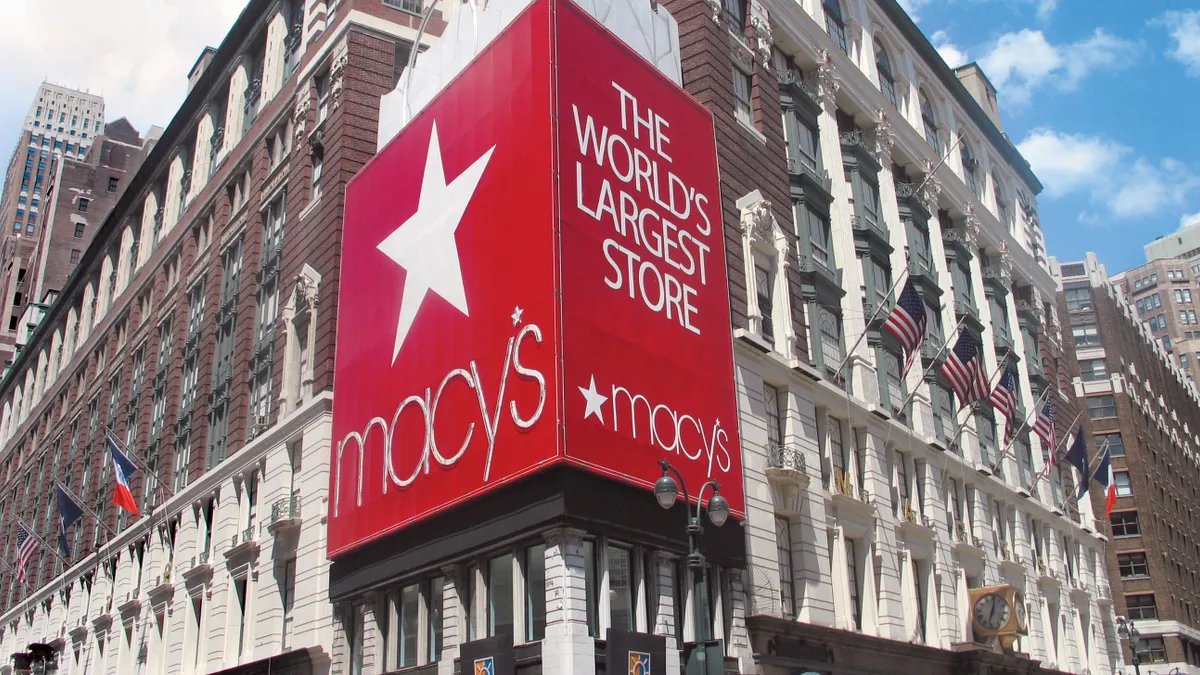Dive Brief:
- Macy's bid to employ RFID technology to all stock by 2017's end is already making a positive difference for the store, Retail TouchPoints reported Wednesday.
- RFID tagging has so far helped Macy' lower inventory variance by to 2-4.5%, decrease display shortages from 30% to 4-6% and reduce markdowns enabling a 2.6% full-price sale increase in the Women's Shoe Department (WSD), according to data from Macy's analyzed by the Platt Retail Institute.
- The impact of RFID-tagging was also visible in fulfillment. Orders for tagged merchandise were fulfilled 6.1% more than non-tagged merchandise.
Dive Insight:
In October 2016, Macy's went public with its intent to have every item it sold RFID-tagged by the end of 2017. Early results show the effort is more than worthwhile, as Target too has discovered, having found greater operational efficiencies and better cost management over inventory and payroll as a result.
Despite these examples, many retailers have yet to adopt the tagging technology, generally citing two prohibitions: first, the three components of RFID are unavailable as a single purchase, meaning that the tags, the readers, and the platform for information retrieval must be purchased separately, RFID Journal reports. Secondly, many retailers are already too busy with daily operations and RFID-drives are seen as another lengthy implementation that may not be worth it in the end.
In other words, purchase risk and implementation costs are too high for the evident benefits of the technology. The result? Many keep managing inventory the old way, and miss out on restocking alerts and greater visibility on item availability that could help in this omnichannel age.
So how does the industry move past these perceived costs to full adoption? For one, more clear data — like the Platt Retail Institute's most recent study — on the technology's benefits is necessary. Any manager knows new initiatives require a good business case with a cost-benefit analysis, but despite the decades-long RFID-hype few comprehensive studies are available.
"To our knowledge, this is the most extensive set of data made available on the quantifiable attributes associated with RFID at a retail store," the Platt Retail Institute writes in its abstract, stating its purpose is to "present detailed findings of the benefits associated with RFID technology at a major department store."
Auburn University, too, recently released a report on the 2016 State of RFID Adoption, showing 96% of the surveyed apparel retailers plan to implement the technology. The market is growing, and Macy's is a clear pioneer in the effort — but to prove the benefits to the industry, RFID-enabled retailers must continue to spread the word on their success.













